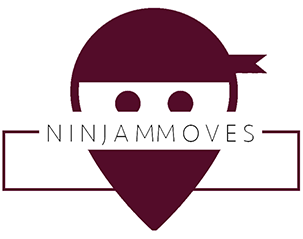Quezon Memorial Circle (QMC) is a major national park and cultural landmark in Quezon City, Metro Manila. It is an elliptical area for about 25-27 hectares and its construction was completed in 1978.
Quezon Memorial Circle Opening Hours
The opening hours of Quezon Memorial Circle is from 5 AM to 10 PM.
Quezon Memorial Circle Entrance Fee
The entrance to Quezon Memorial Circle is free. However, if you bring a car, there is a parking fee of ₱20.
The Quezon Memorial Shrine
The Quezon Memorial Shrine is a 66-meter monument symbolizing the age at which President Manuel L. Quezon died. Its towering pylons represent Luzon, Visayas, and Mindanao. Beneath the shrine lie the remains of President Quezon and his wife, Aurora Quezon. An observation deck offers panoramic views of the city, though it is rarely open to the public. At night, the monument is illuminated in the colors of the Philippine flag.
Highlights of the museum include the Presidential Car Museum, Bahay Modernismo, and Qo-CX (Quezon City Experience), an interactive city museum.

Quezon Memorial Shrine
The Park
The park features a flower garden, tropical garden, fern garden, children’s playground, Circle of Fun amusement rides, walking and biking trails, and sports courts. It’s a go-to spot for morning jogs, afternoon strolls, and family picnics.
When my mother and I want to breathe fresher air, escape the noise of the city, and reconnect with nature without going too far from home—since we also live in Quezon City—we come here for merienda. We used to go to La Mesa Eco Park, but I think that place has gotten a little sad.

QMC Garden Center
If you’re a plantita, Quezon Memorial Circle is a great place to shop! They sell orchids, herbs, bonsai, cacti, succulents, ornamentals, soil, fertilizers, pots, garden accessories, and more. The plants and gardening items are very affordable.
- We bought stevia for only ₱50.
- A dwarf snake plant (Sansevieria) was just ₱250.
- Regular-sized pots were only ₱60 each.
- A coco pole cost just ₱50. And the soil I bought was only ₱60 too!

Quezon Memorial Circle Herbal Products Stalls
There are herbal product stalls beside the food stalls and the parking area—you just have to look for them. My mother bought liniment oil and all-natural powdered drinks. I bought pure honey from Sagada for ₱250, and an all-natural soap for just ₱30!

Quezon Memorial Circle Food Stalls
There are plenty of food options to choose from—ihaw-ihaw, lugaw, common street food on sticks, dynamite, buko juice, various types of juice, and even rice meals. It’s nice to eat under the trees, al fresco style.

Also read: Robinsons Magnolia
Waste Management
Okay, so this is definitely not an attraction, but I find the waste segregation here truly inspirational. I also noticed that Quezon Memorial Circle promotes the use of less plastic. On the opposite side of the Quezon Memorial Circle is Quezon City Hall, where employees and nearby food stalls follow the same practice. I even saw some employees bring their own empty lunch boxes and ask the vendors to put their food there instead of using styrofoam or microwavable containers.

Quezon Memorial Circle History
Quezon Memorial Circle became the memorial of Manuel L. Quezon because it was originally chosen as the site to honor his legacy as the first President of the Commonwealth of the Philippines and a key figure in the country’s path to independence.
In 1939, he declared Quezon City as the new capital of the Philippines, replacing Manila, which had become crowded and prone to flooding.
The Quezon Memorial Circle was supposed to be the site of the National Capitol—the new seat of government. However, after Quezon died in 1944, and due to delays caused by World War II, the government decided instead to build a monument and mausoleum there to honor him, fulfilling his wish to be buried in the city named after him.
Why the Capital Returned to Manila
Although Quezon City was the official capital from 1948 to 1976, here’s why it shifted back to Manila:
- Many national government offices, including Malacañang Palace (the official residence of the president), remained in Manila even after the declaration. The planned government center in Quezon City was never fully completed.
- Under President Ferdinand Marcos, a law was issued officially declaring Manila as the capital and Metro Manila as the seat of government.
- Manila remained more accessible, developed, and historically significant as the country’s center of political, economic, and cultural activity.
